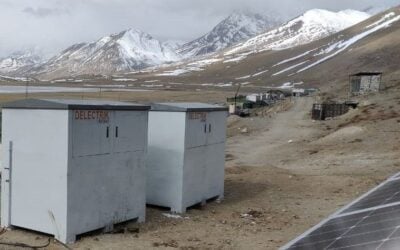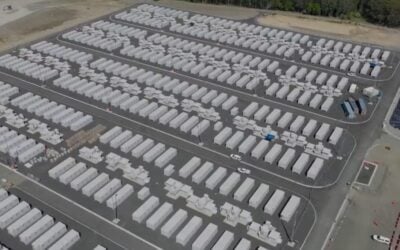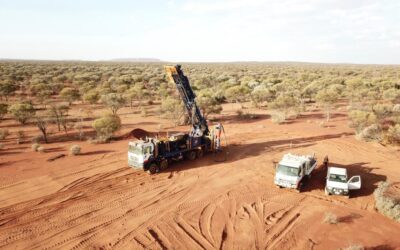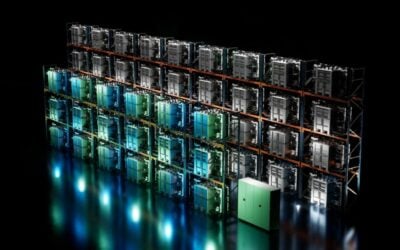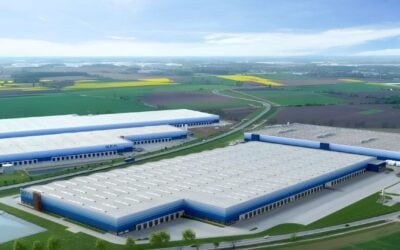Tesla (and Imergy) director Ira Ehrenpreis with Imergy CEO Bill Watkins. Image: Imergy facebook page.
A Silicon Valley-headquartered flow battery maker will provide energy storage for telecommunications networks in China, replacing diesel use in a pilot programme ahead of “wide-scale deployment”.
Imergy Power Systems, headquartered around five miles from Tesla in Fremont, California, announced this morning that it has signed a two-year deal with China’s Juno Capital Group. Under the terms of the exclusive deal, the partners will develop energy storage systems based on Imergy’s Energy Storage Platform for telecoms base stations. If successful, the agreement will lead to further telecoms projects across China, leading eventually to a roll-out of the technology into other industries, Imergy said.
Stationary energy storage is seen as a particularly good fit for telecoms base stations, which often stand alone and can connect remote areas together, while needing more or less 24/7 access to power. Similar pilot projects have been trialled in Australia, with one European company, Photon Energy, developing a solar-plus-storage project for a broadcast tower in New South Wales last year.
Imergy has been busily hitting overseas markets with its vanadium redox flow batteries recently, especially India, including a deal with SunEdison to supply systems to a series of rural and micro-grid projects in the country, some commercial projects for renewables-powered warehouses and a small test installation at the SunEdison and Global Academy of Technology (GAT) solar research and testing centre in Bangalore. The company’s batteries are made with recycled materials, with Imergy claiming that the IP it holds for the products can help bring down costs, which have so far been something of an industry-wide barrier for flow batteries. Also notable from a business perspective is the presence on Imergy’s board of directors of Ihra Ehrenpreis, a venutre capital investor who was among the early investors in Tesla and also sits on the board of directors for that company too. Ehrenpreis more recently has been part of DBL, an investment firm which seeks to deliver strong returns as well as positive social impact, co-founded with fellow Tesla-backer Nancy Pfund.
Try Premium for just $1
- Full premium access for the first month at only $1
- Converts to an annual rate after 30 days unless cancelled
- Cancel anytime during the trial period
Premium Benefits
- Expert industry analysis and interviews
- Digital access to PV Tech Power journal
- Exclusive event discounts
Or get the full Premium subscription right away
Or continue reading this article for free
Investment company Juno Capital Group, which provides services in cleantech and related industries including asset management and sustainable development will integrate the Imergy platform with renewable energy sources at an unnamed number of telecommunications sites at off-grid locations and regions with weak grids. Many such installations use diesel generators at present and the project with Imergy will assist Juno in developing cost-effective and cleaner solutions for them. Moving on from there, Imergy said, the partnership will branch out into providing distributed energy solutions for a range of other industries where applicable.
Imergy’s VP for Europe, the Middle East and Africa, Tom Tipple, recently visited PV Tech Storage’s offices where he explained the appeal of several markets including PJM in the US, Germany and South Africa and the suitability of flow batteries to meet many of the market-specific needs in each.
On the latest deal, Imergy CEO Bill Watkins said Juno Capital Group was “uniquely qualified to address the demands of China’s telecom market”.
“As China continues to consolidate and broaden its power infrastructure to meet the changing mix of renewable and conventional generation, Imergy is pleased to deliver a high quality, reliable power supply to meet the needs of the telecommunication industry in a cost-effective and sustainable way,” Watkins said.

